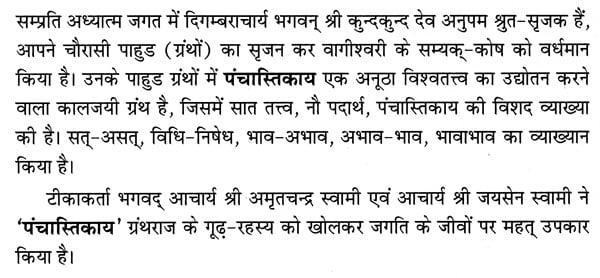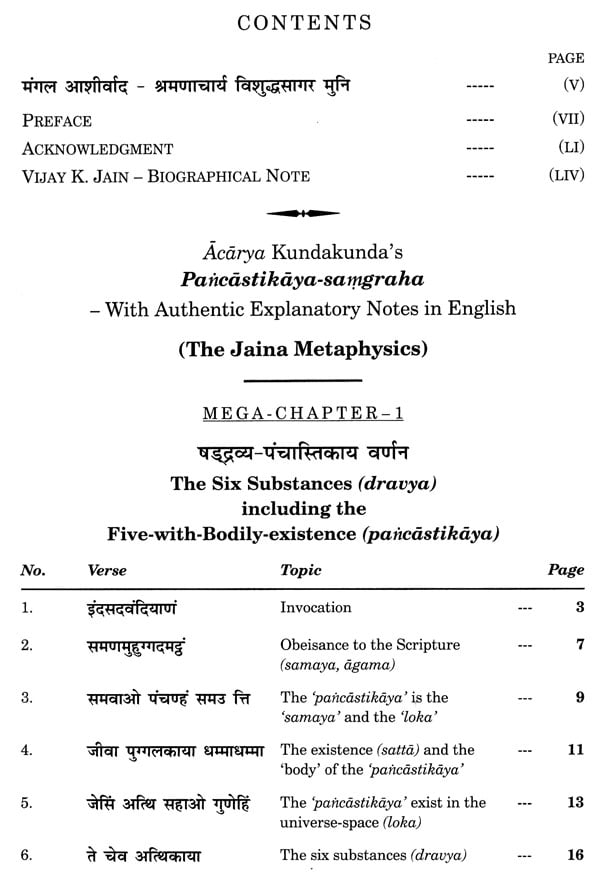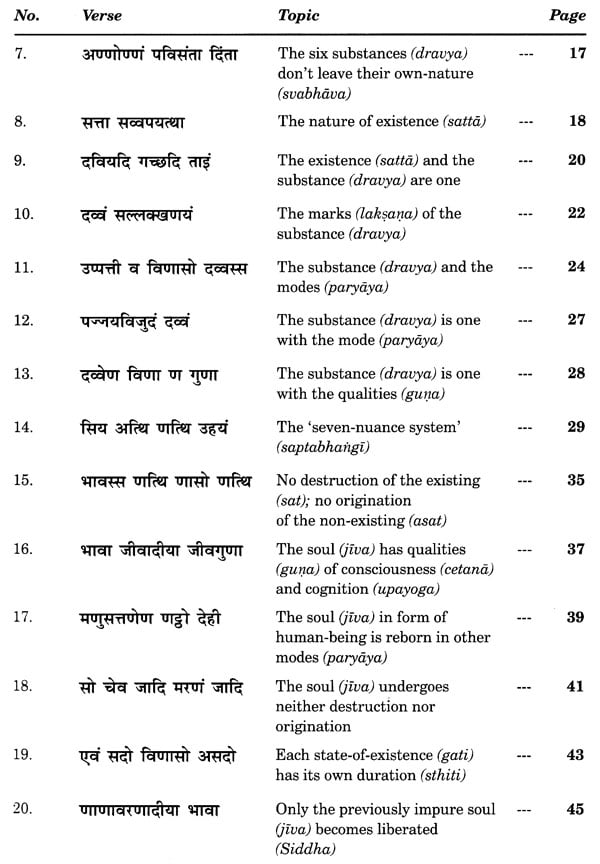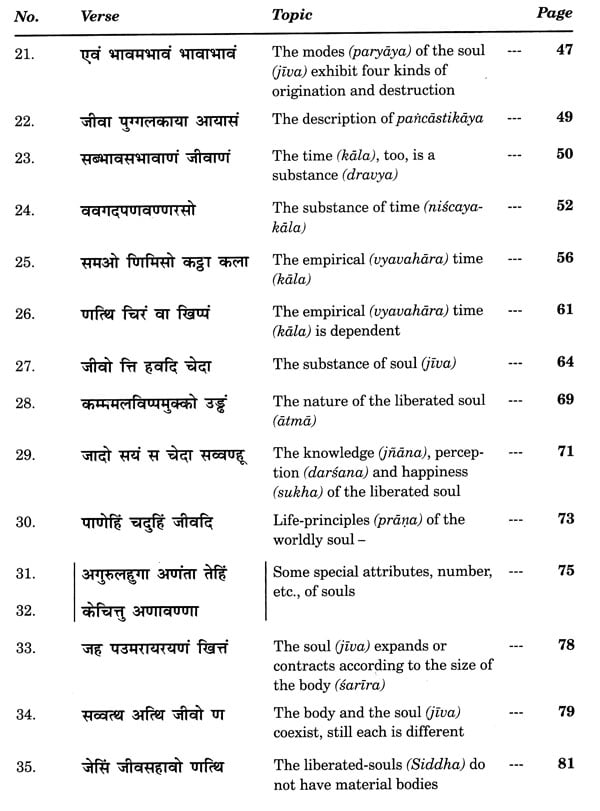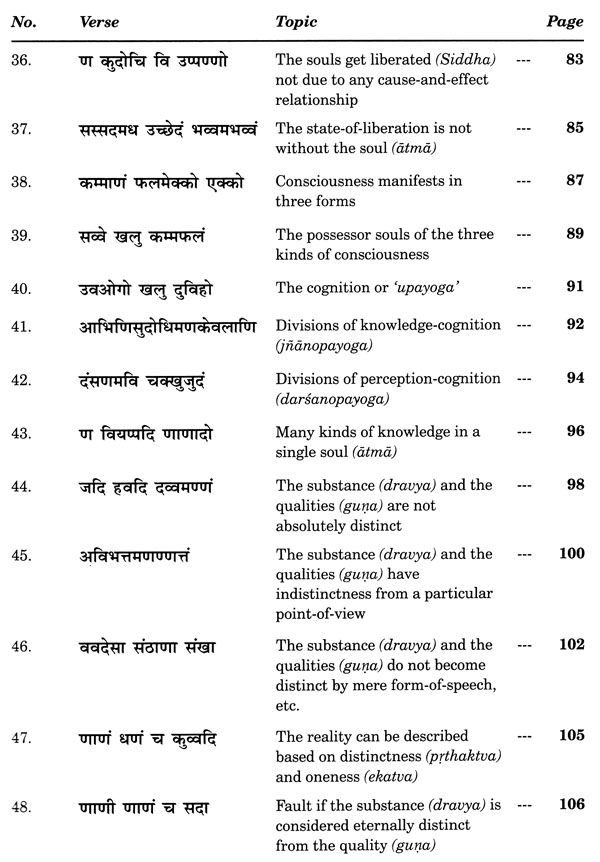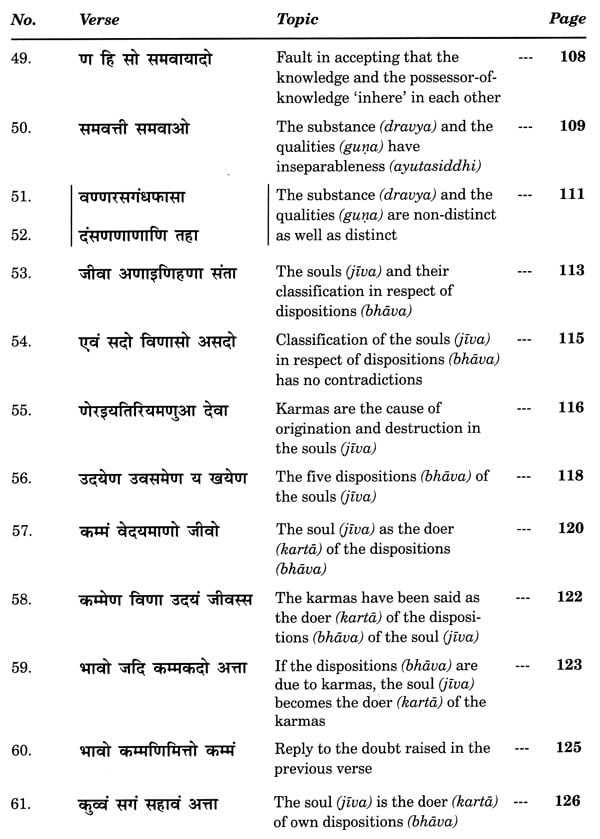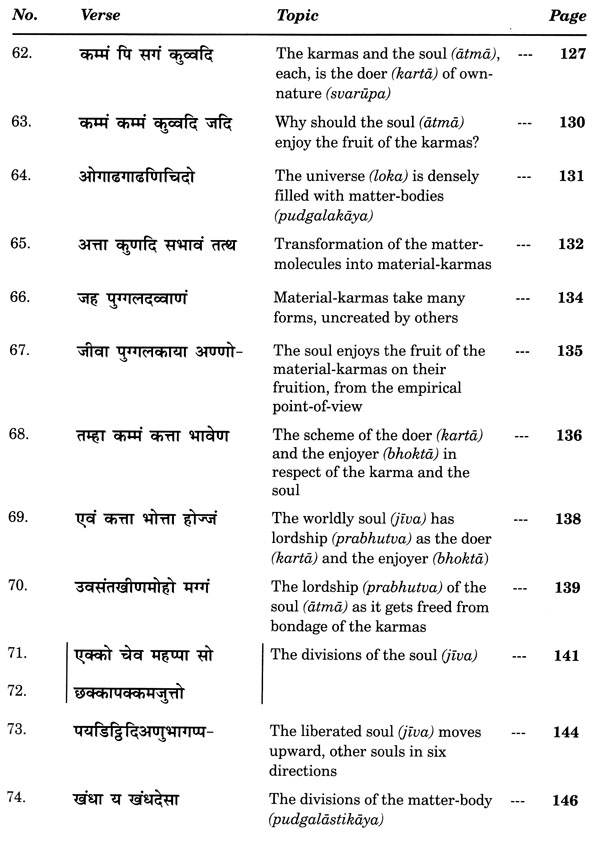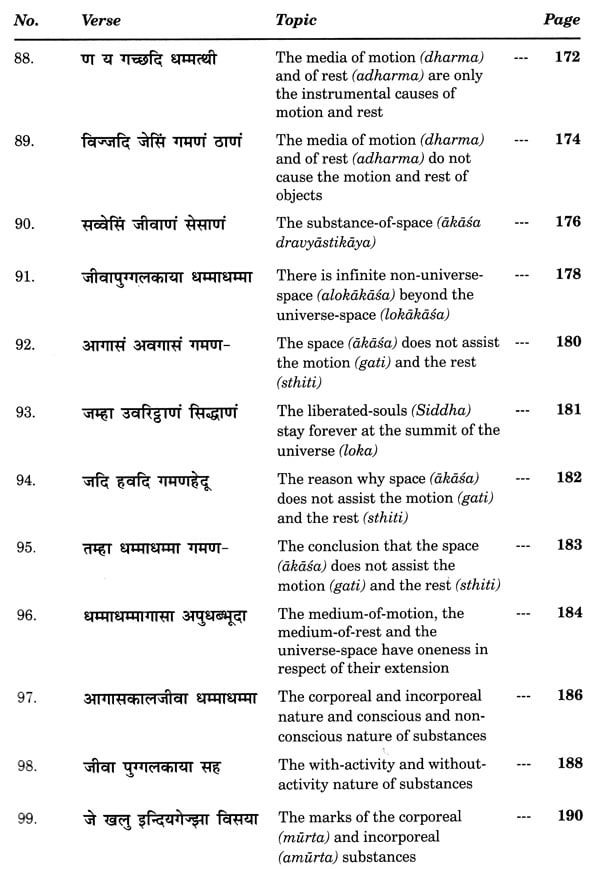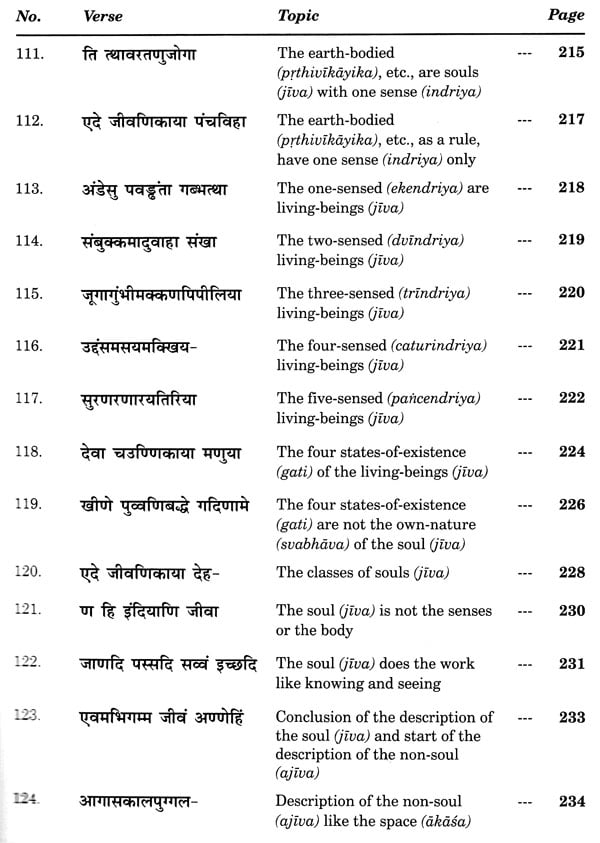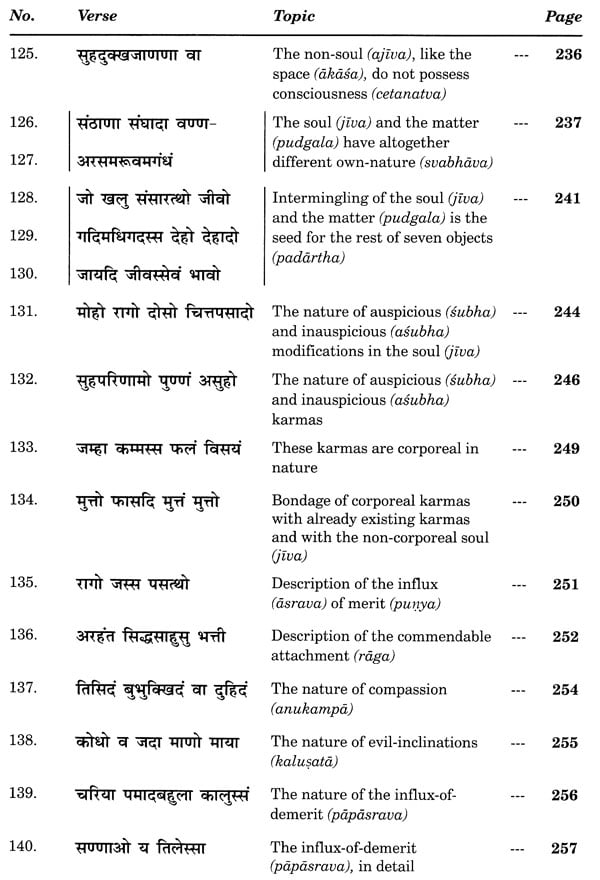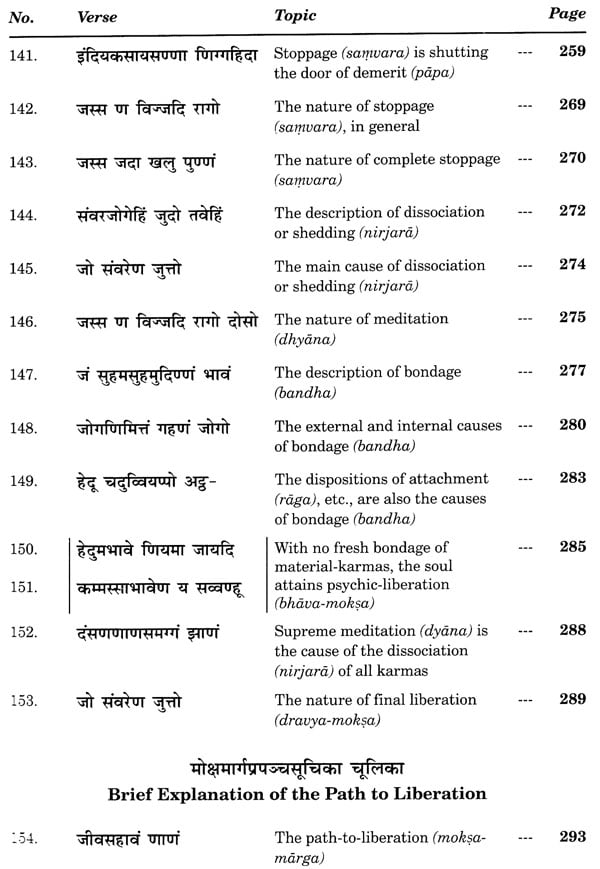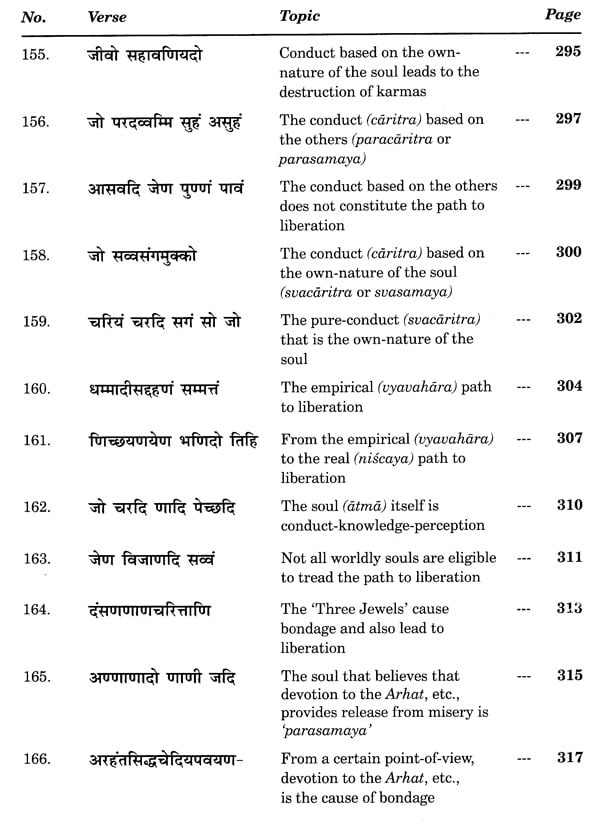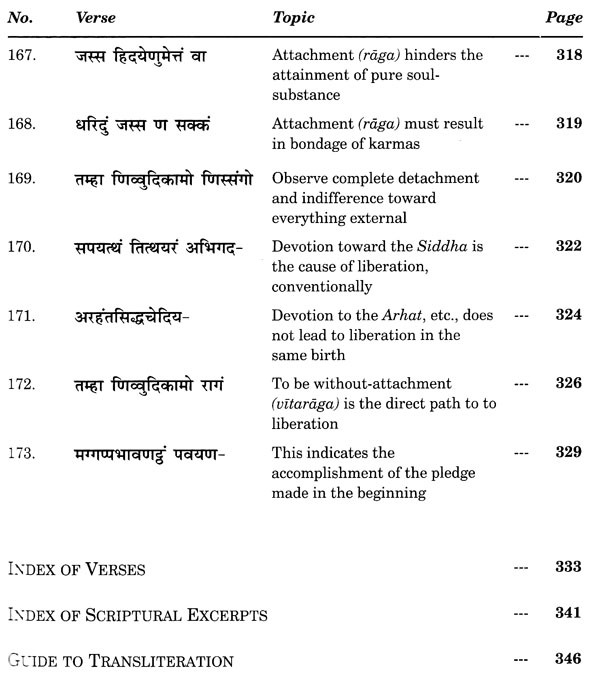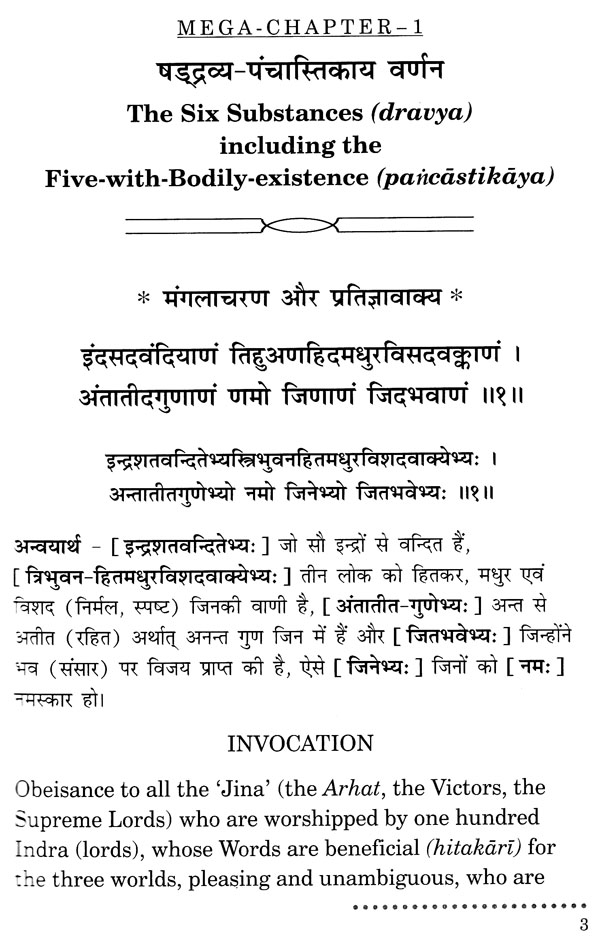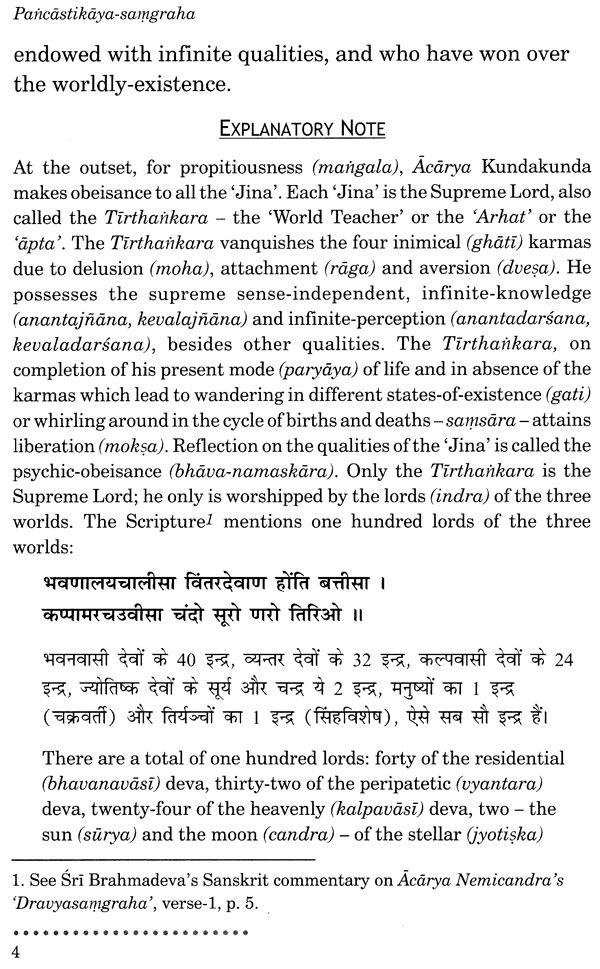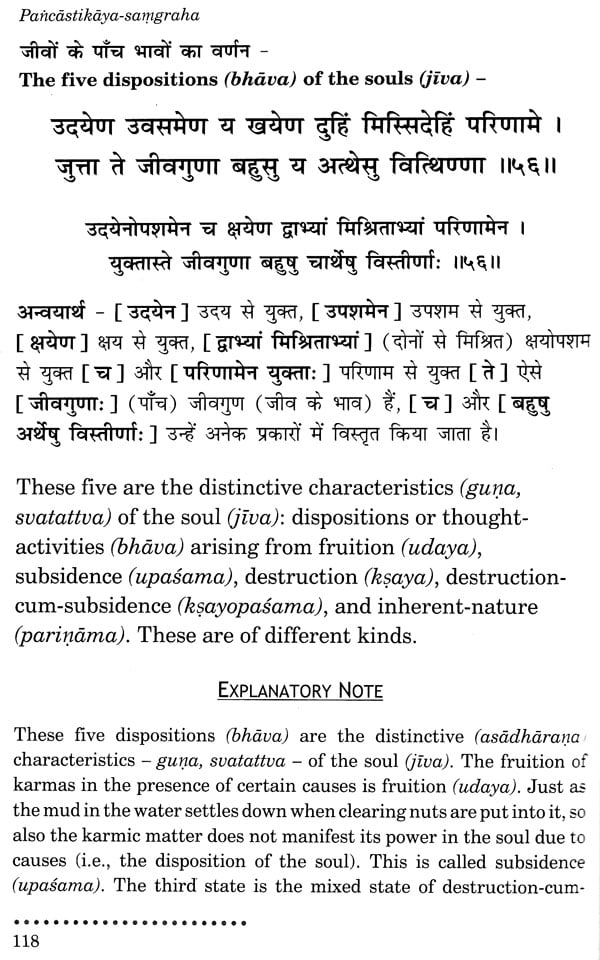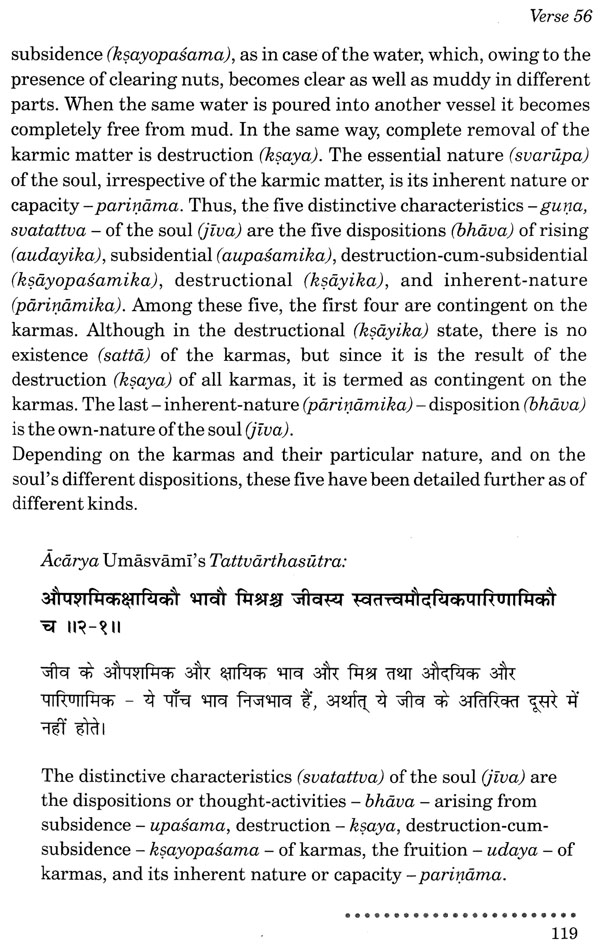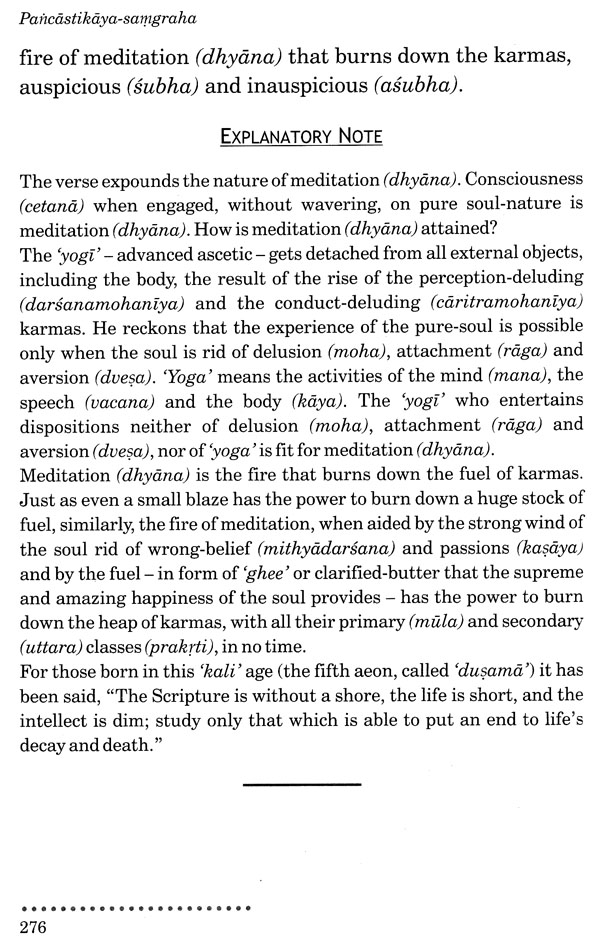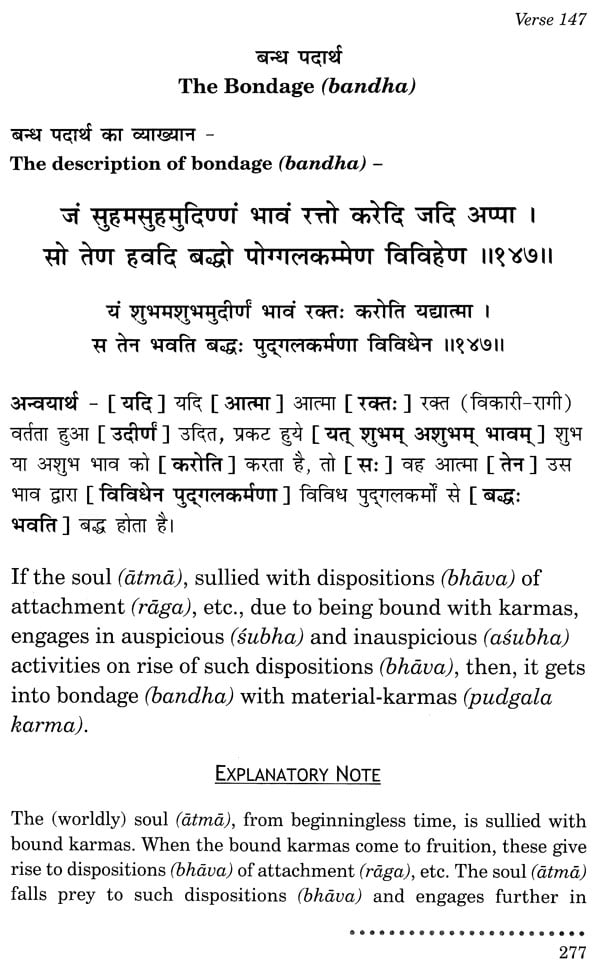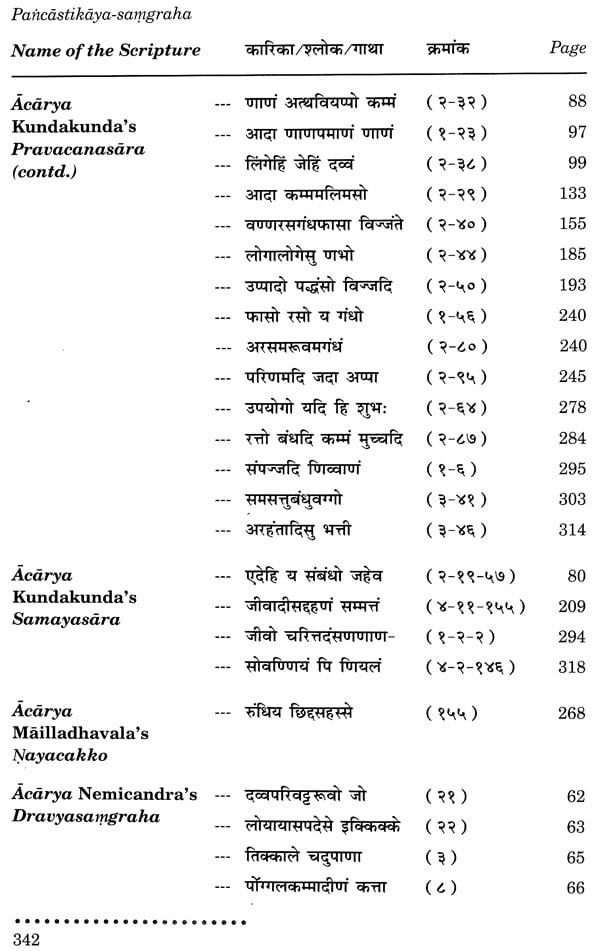
आचार्य कुन्दकुन्द विरचित पंचास्तिकाय-संग्रह - Acarya Kundakunda's Pancastikaya-Samgraha- With Authentic Explanatory Notes in English (The Jaina Metaphysics)
Book Specification
| Item Code: | NAY246 |
| Author: | Vijay K. Jain |
| Publisher: | Vikalp Printers |
| Language: | Sanskrit Text with English and Hindi Translation |
| Edition: | 2020 |
| ISBN: | 9788193272657 |
| Pages: | 358 |
| Cover: | HARDCOVER |
| Other Details | 9.50 X 6.50 inch |
| Weight | 940 gm |
Book Description
The name of Acarya Kundakunda has an auspicious significance and is uttered with great veneration. Almost universally, the Jainas - ascetics (muni, sramana) and laymen (sravaka) - recite the above verse as a mark of auspiciousness at the start of their activities.
The Scripture (agama) - the Word of the Omniscient Lord
There were eleven ganadhara in Lord Mahavira's (599-527 BCE) congregation, with Gautamasvami, also known as Indrabhuti, as his chief disciple. After liberation (nirvana) of Lord Mahavira, sequentially, in the course of next sixty-two years, three anubaddha kevali attained omniscience (kevalajnana) - Gautamasvami, Sudharmacarya, and Jambusvami. They are called 'sequential' or `anubaddha' kevali because of the fact that Gautamasvami attained omniscience on the day Lord Mahavira attained liberation, and so on.
Acarya Visuddhasagara maintains that the mark (laksana) or the dharma' of the true ascetic (muni, sramana) is the disposition (bhava) of equanimity (samya). Since the words of the true ascetic are incontrovertible, it follows that, for him, enemy (satru) and kinsfolk (bandhu-varga), happiness (sukha) and misery (duhkha), praise (prasamsa) and censure (ninda), iron (loha) and gold (svarna), and life (prana-dharana) and death (prana-tyaga) are alike.
Acarya Visuddhasagara has showered me with his divine blessings in this project. His divine blessings have had wondrous effect in making both, the process and the end-result, most gratifying for me.
I bow my head in utter reverence to Acarya Visuddhasagara and each disciple-ascetic (sisya muni) of his congregation (sangha).
I make deep obeisance to the supremely holy Acarya Kundakunda, the composer of the supreme Scripture Pancastikaya-samgraha' Acarya Kundakunda stands out in the assembly of venerable sages like the moon in the assembly of the constellations of stars.
My reverential salutations to the most learned Acarya Amrtacandra, the composer of Samayavyakhya', and Acarya Jayasena, the composer of `Tatparyavrtti’, for composing these masterpiece commentaries on Pancastikaya-samgraha’. These commentaries have enabled me to get to the depth of the profound tenets expounded by Acarya Kundakunda in this holy text.
Book's Contents and Sample Pages
